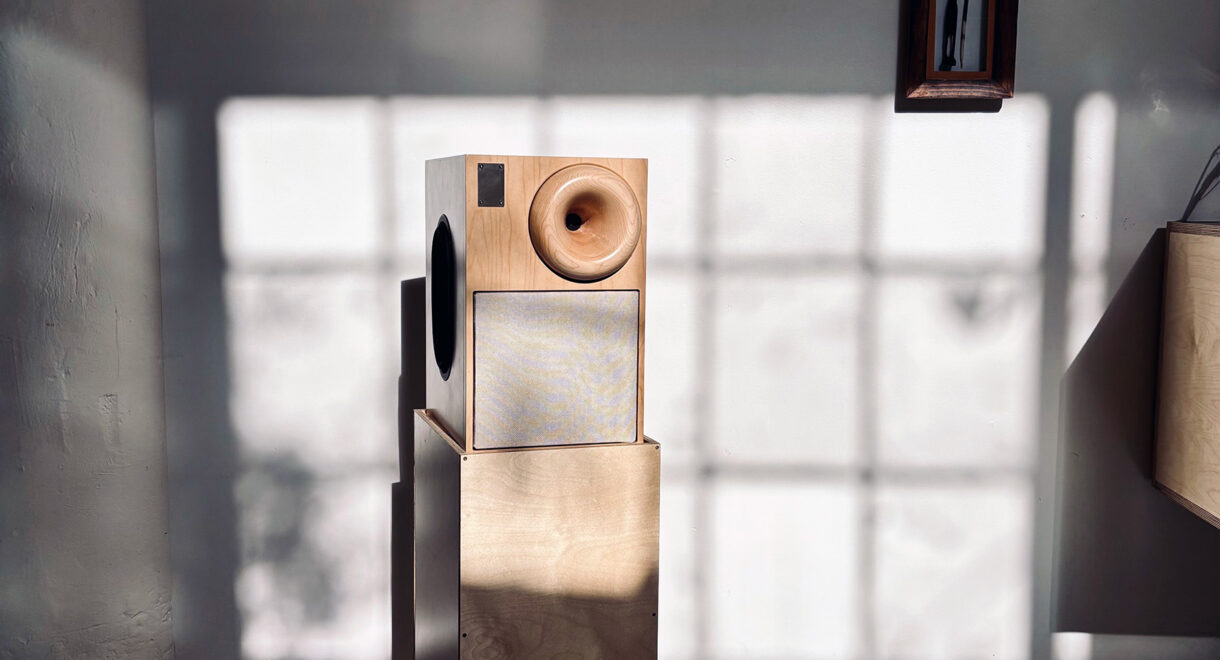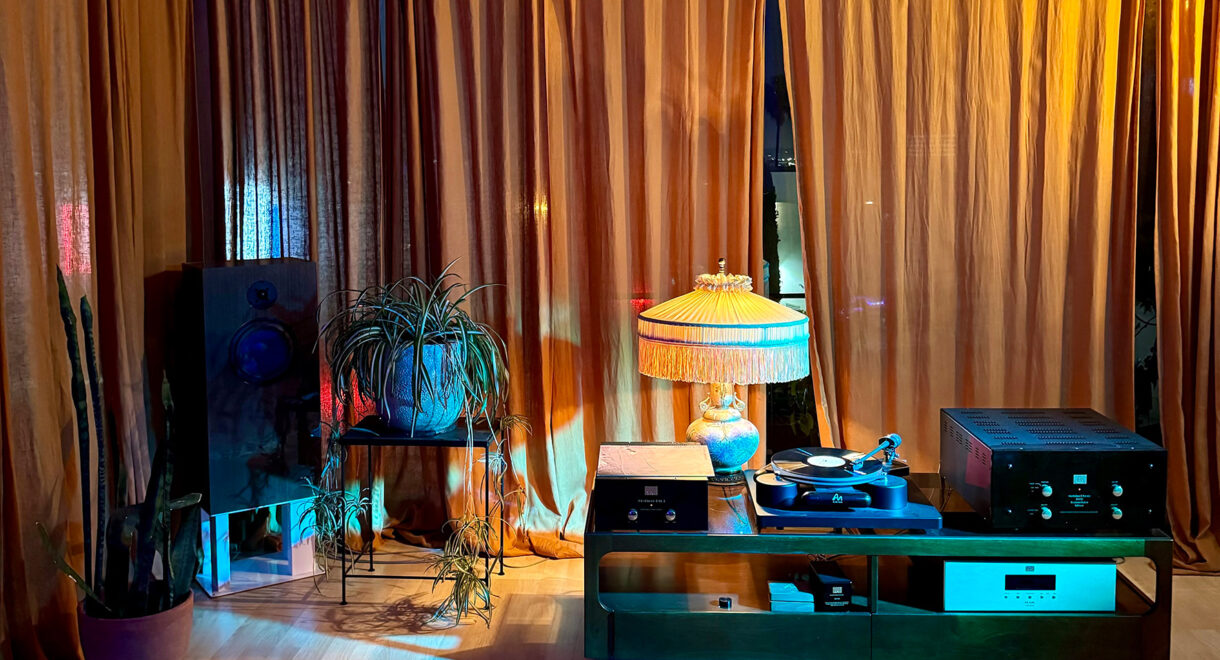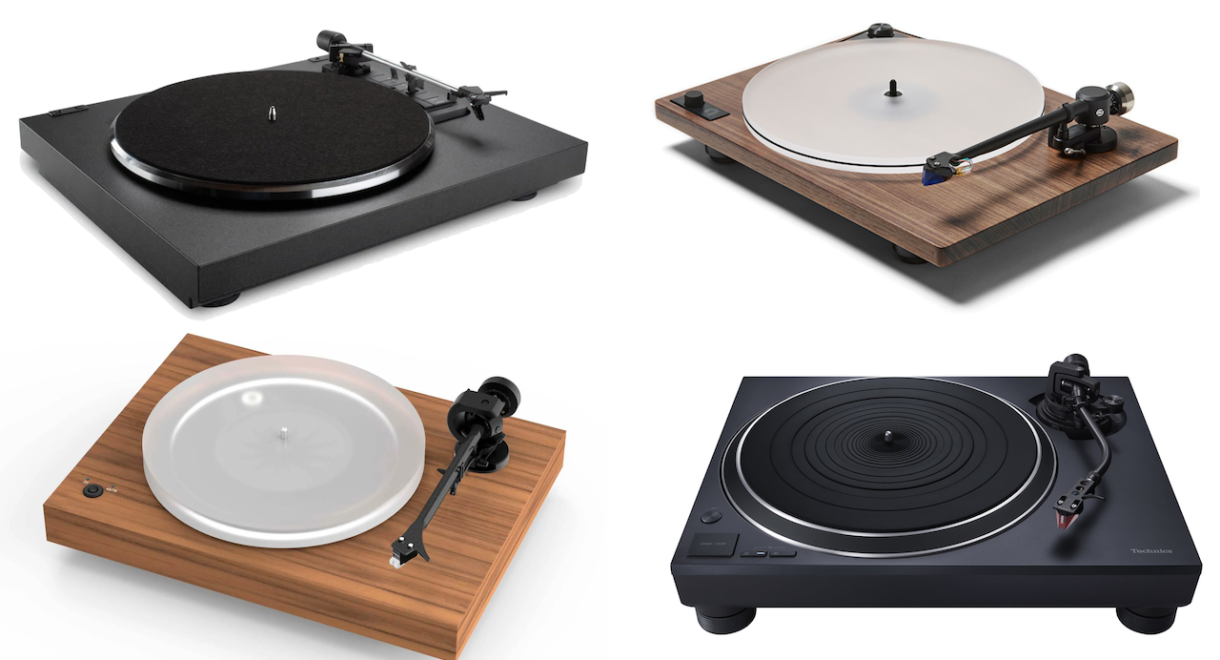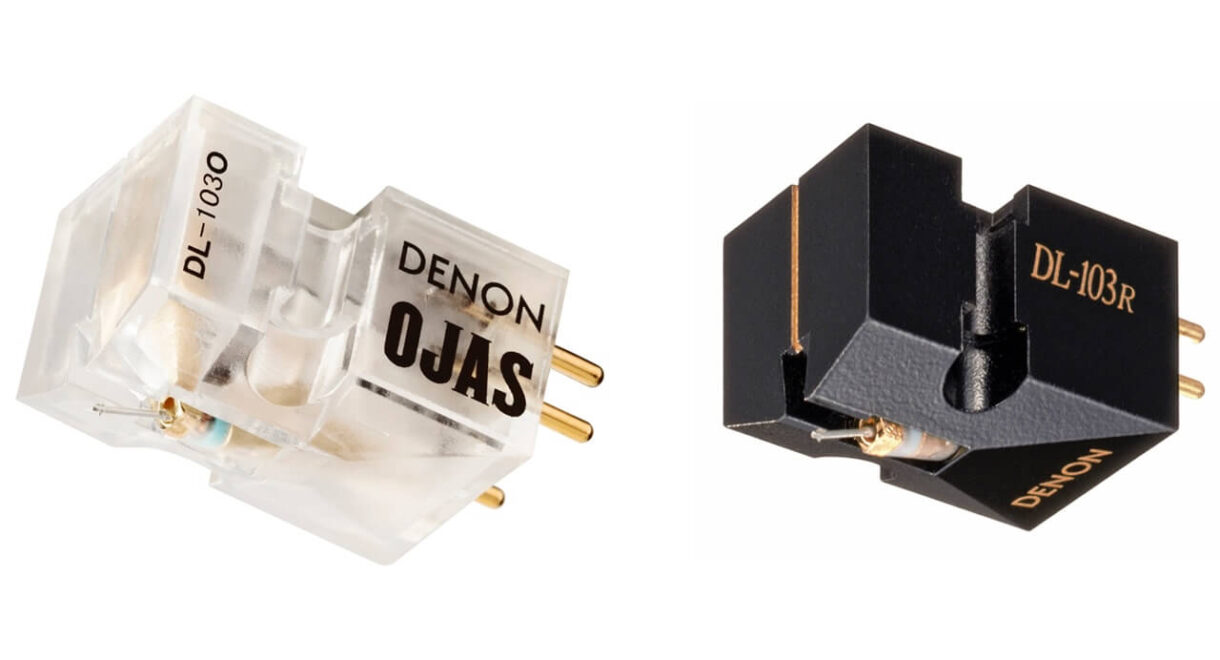Transparent clarity, deep bass, and “Invisible Sound” from German audio company ADS. Background: One of the lesser known hi-fi brands of the ’70s, ADS (Analog and Digital Systems) […]
Stores We Love: Turntable Lab (New York)

Peter Hahn, Owner and Founder of Turntable Lab in New York City, joins eCoustics for 10 questions.
If you shop for records, DJ equipment, HiFi equipment, or turntable accessories online, you’ve probably spent some time on the Turntable Lab website. After more than 20 years, the online retailer has a global customer base who love their selection of products, and value their expertise and customer service. As a customer, I’ve always been drawn to their music section that offers records you don’t often see for sale on sites like Music Direct or Acoustic Sounds.
Founder Peter Hahn is a very busy guy and constantly looking for new products for Turntable Lab’s rather extensive global customer base. He’s not afraid to take a flyer on some products that are TTL-branded concepts and many of them have proven to be very successful.
Below, Hahn explains how the company started and offers up some thoughts on the future of vinyl.
How did you get started and why?
I was a working DJ in college (NYU, 90s) and kept having to buy mixers, Stanton styluses and replacement parts down on Canal Street. Coming armed with price research and entering into intense haggling, I still ended up paying over the MSRP.
After a while, I was the go-to help for other DJs who wanted to buy gear down there. I thought there had to be a better way to buy gear, so two of my college friends and I launched turntablelab.com in my college apartment. We were one of the first DJ stores online and rode the early boom in turntablism (eg. Invisibl Skratch Piklz, X-ecutioners, DMC Battles).

What were some of the biggest challenges starting and how did you overcome them?
We started the business when we were 21. Learning everything from scratch while bootstrapped has basically been our MO. Our first large order, which we celebrated, was fraudulent. We were calculating price margins wrong for the first couple of weeks. We had to break into the well established network of pro audio, then HiFi. Our biggest challenge, however, has been riding the huge market swings over the past 2 decades.
We’re definitely in an excellent moment for vinyl right now, but we’ve seen some dark days like CD supremacy, the introduction of Serato, opening a bi-coastal store at the start of the financial crisis, etc. Having to navigate those eras without macro know-how was extremely stressful and scary.
Who is your typical customer?
Judging by the type of records (emo-pop to esoteric) we sell and the price range of our turntables ($99 – $2,500), it’s all over the place. However, we have an idea of the typical “Labhead” that helps guide us. A Labhead has been following us for over 10 years; has DJ’ed at one point (or still does); and collects multiple genres of records. I know a bunch of people who fit this profile and have been shopping with us close to 20 years.

How has Turntable Lab navigated the pandemic and what changes did you have to make in order to both navigate all of the rules in Brooklyn and keep up with demand?
All those challenges I mentioned before prepared us for the pandemic. I feel like in difficult business situations, it’s inaction that will kill you. We took definitive action like closing the storefront early; creating and enforcing a safe workplace, and upgrading our fulfillment to meet demand. Since the pandemic started, we’ve doubled our warehouse space and doubled our shipping department. Luckily, we’re located in the business-friendly Brooklyn Navy Yard. They’ve been excellent in terms of balancing safety and productivity.
What are some of your favorite products and why?
Here are the items I’m happiest to offer to customers:

Technics SL-1200MK7 ($999.99)
One of the happiest days in my life was getting my first pair of Technics (SL-1200MK2). I remember staying up all night playing with the motor and ogling the S-shaped tonearm. I still have that pair, and have never needed any repair. We launched the business selling 1200s, so when they launched the MK7, it was like coming back full circle. Although I miss some of the visual cues of the original, the MK7 is a worthy successor.
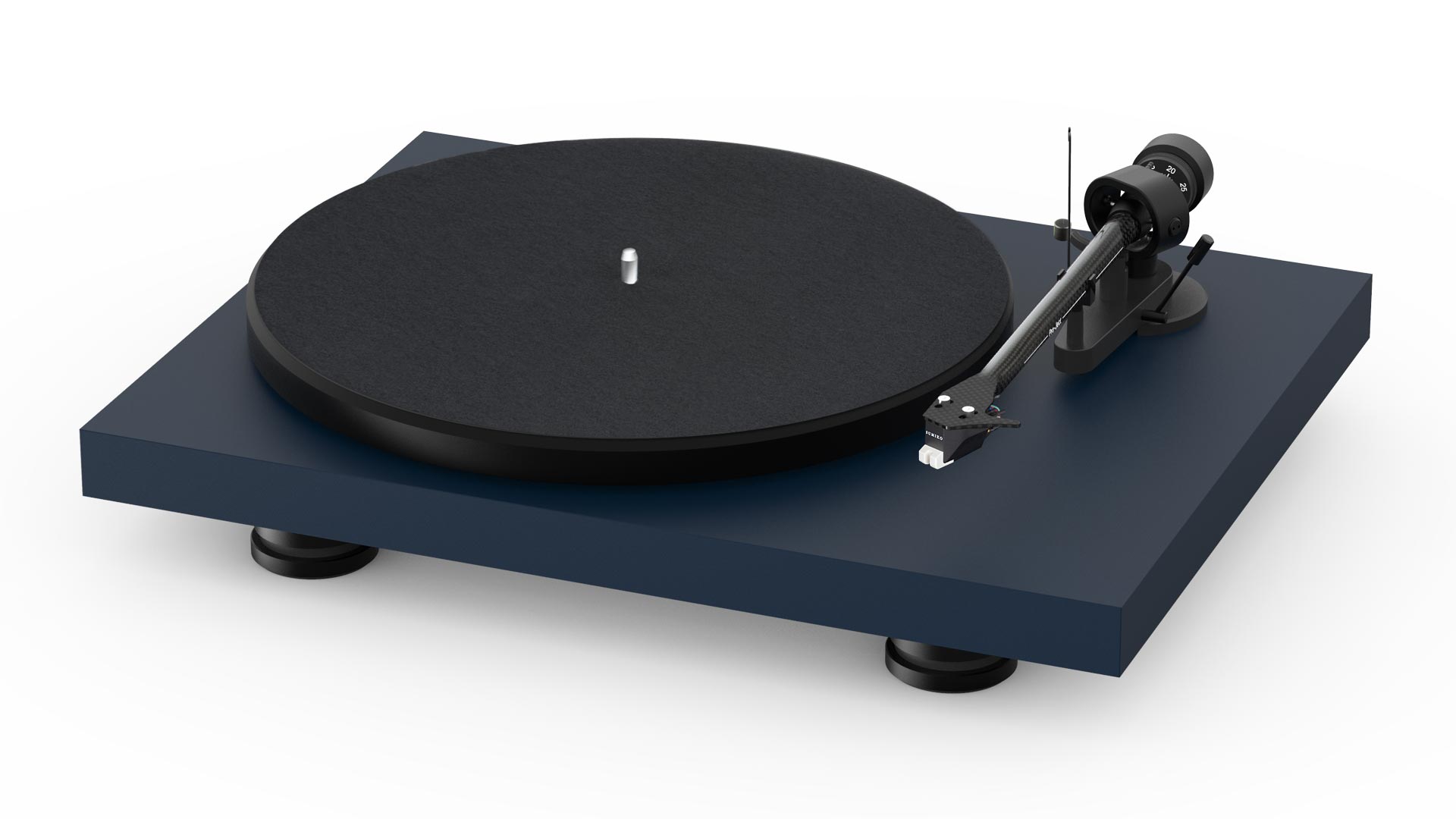
Pro-Ject: Debut Carbon Evo ($599)
I’m pretty sure Pro-Ject was our first HiFi account. We started with the Debut III in the early 2000s. As a dealer, you want consistency across models. Many manufacturers will kill a popular line or introduce new versions without much change. However with the Debut Series, the progression is very apparent. The one-piece carbon fiber tonearm was a game changer in terms of going against the OEM trend. With the Evo, I appreciate how they upgraded components they didn’t necessarily have to upgrade like the feet, motor, and platter. When someone I know personally asks for a recommendation, this is usually the first model I’ll recommend.

Clearaudio Concept ($1,800)
I’ve been a Technics 1200 guy and I thought that would never change. There was a big mix-up in a shipment of Clearaudio turntables, and Garth (our Clearaudio distributor) ended up gifting me a Concept. That was my first high-end turntable and I was just amazed at how it would take static-y, blemished records and play them like they were mint. The way it tracked records was eye-opening.
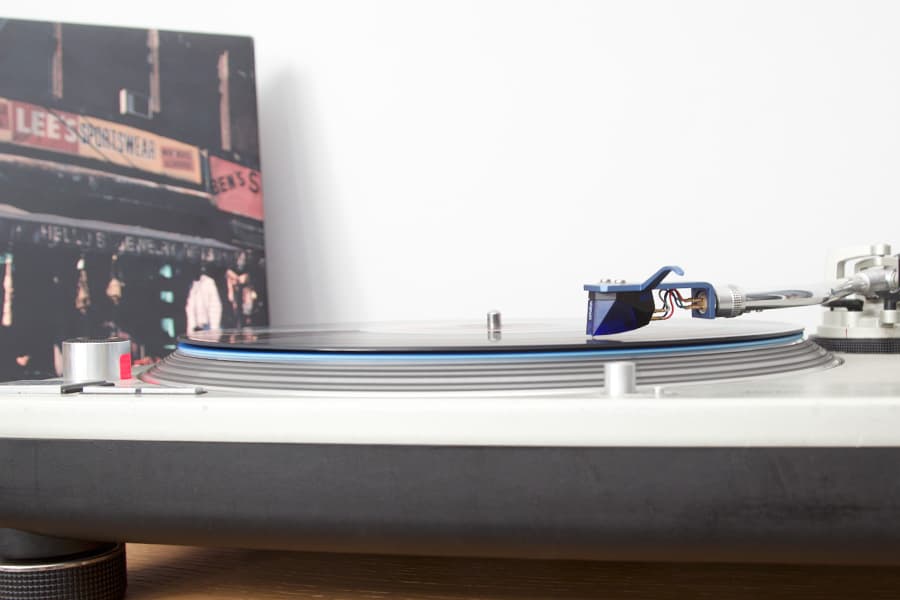
Ortofon 2M Blue ($239)
My background is in design and I love to sell our customers on products that are modular. For me, the 2M Series was one of the first cartridge models that really pushed the idea of modular design. And at this price point, I also like how there’s a definite noticeable upgrade in sound when you swap from Red to Blue.
What do you use in your own system at home?
I have a Technics SL-1200MK2, NAD integrated, Amphion speakers, and Line Phono Stand. I use a REVO Supersystem for listening to internet radio. Teenage Engineering OB-4 for portable listening.
Does it surprise you that vinyl has not only come back but become the #1 physical format again?
No. I was a hyper-consumer for most of my life. It’s part of reason I came to live in New York. In the last 5 years, I started to notice that there was less to buy for collectors like me. Bookstores were closing, toy quality was going in reverse, clothing / sneakers were pricing out. Over the last 5 years, vinyl has for the most part increased in quality while remaining relatively affordable. There’s more pressing plants doing better work.
Labels are putting a lot of effort into packaging. Record stores are presenting the product better. Instagram is an excellent discovery tool. Discogs creates a fun, efficient market. Used record stores add the x-factor. Even colored vinyl, which was too soft / quiet pre-2010, is now very listenable.
Why do you prefer listening to records?
30% = Listen to the entire album. 40% = Album artwork, liner notes, credits, label. 20% record shopping. 5% time/memory stamp. 5% ASMR.

What is the most rewarding part of the job for you?
A couple things. Now that I stopped collecting, I like to live vicariously through super-fans and collectors. For example, I tracked down the band TV Girl to do an exclusive run of their self-released album ‘French Exit,’ which was highly in-demand by fans. It was so cool to work directly with the artist and then seeing all our customers’ reaction on Instagram when they received the record.
Seeing how our team came together during this pandemic has been inspiring. There was a lot of uncertainty in the early days of the pandemic, and our warehouse crew stepped up immediately.
Lastly, running the business with one of my best friends has been especially fulfilling. After a whole work week together, we’ll still meet up on a weekend with our kids.

What are your 5 Desert Island Records?
Aphex Twin – Selected Ambient Works (1992)
The Cure – Disintegration (1989)
Nas – Illmatic (1994)
Bjork – Debut (1993)
John Coltrane – Giant Steps (1960)
This article originally appeared at ecoustics.com and has been published here with permission.





